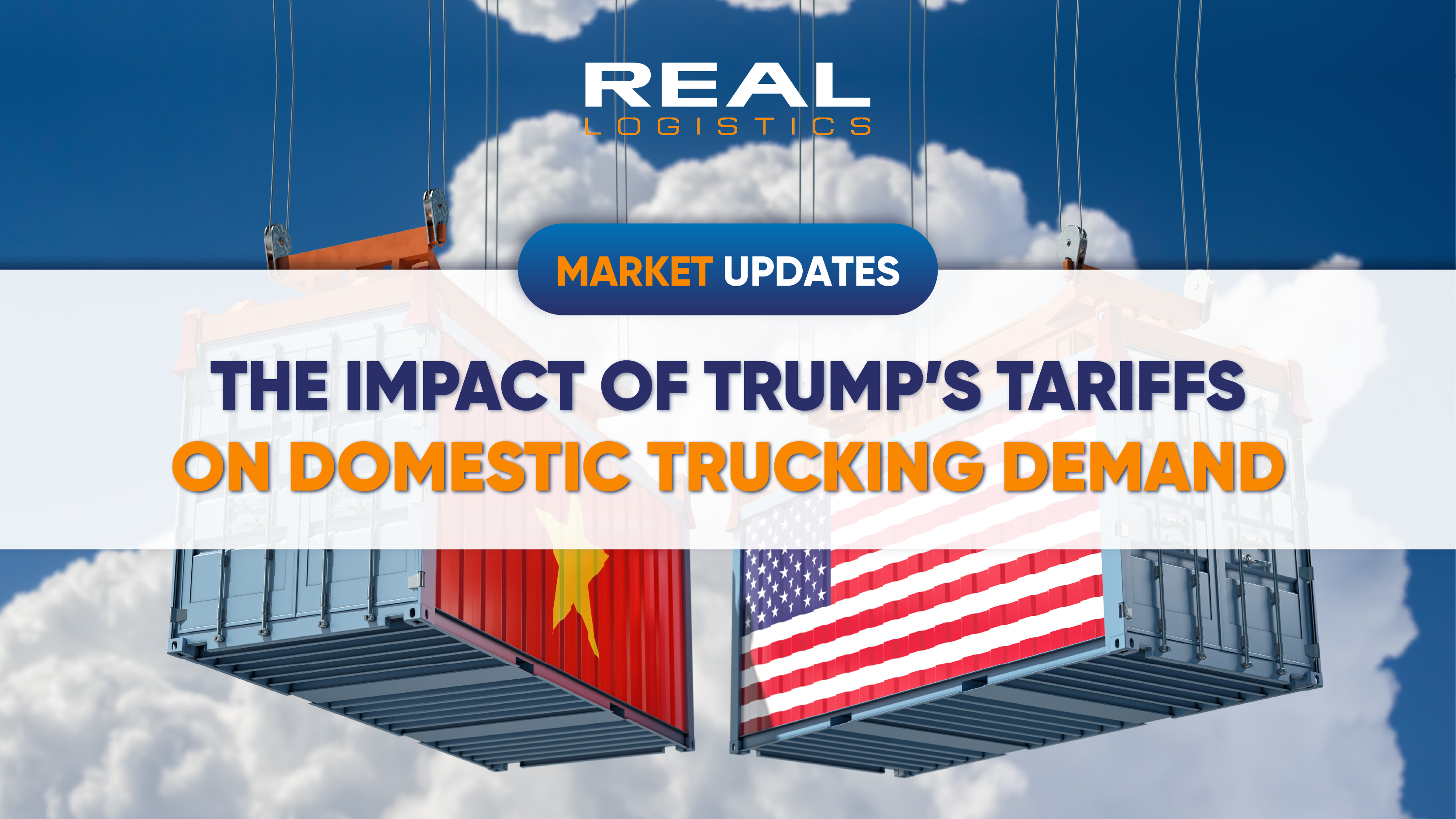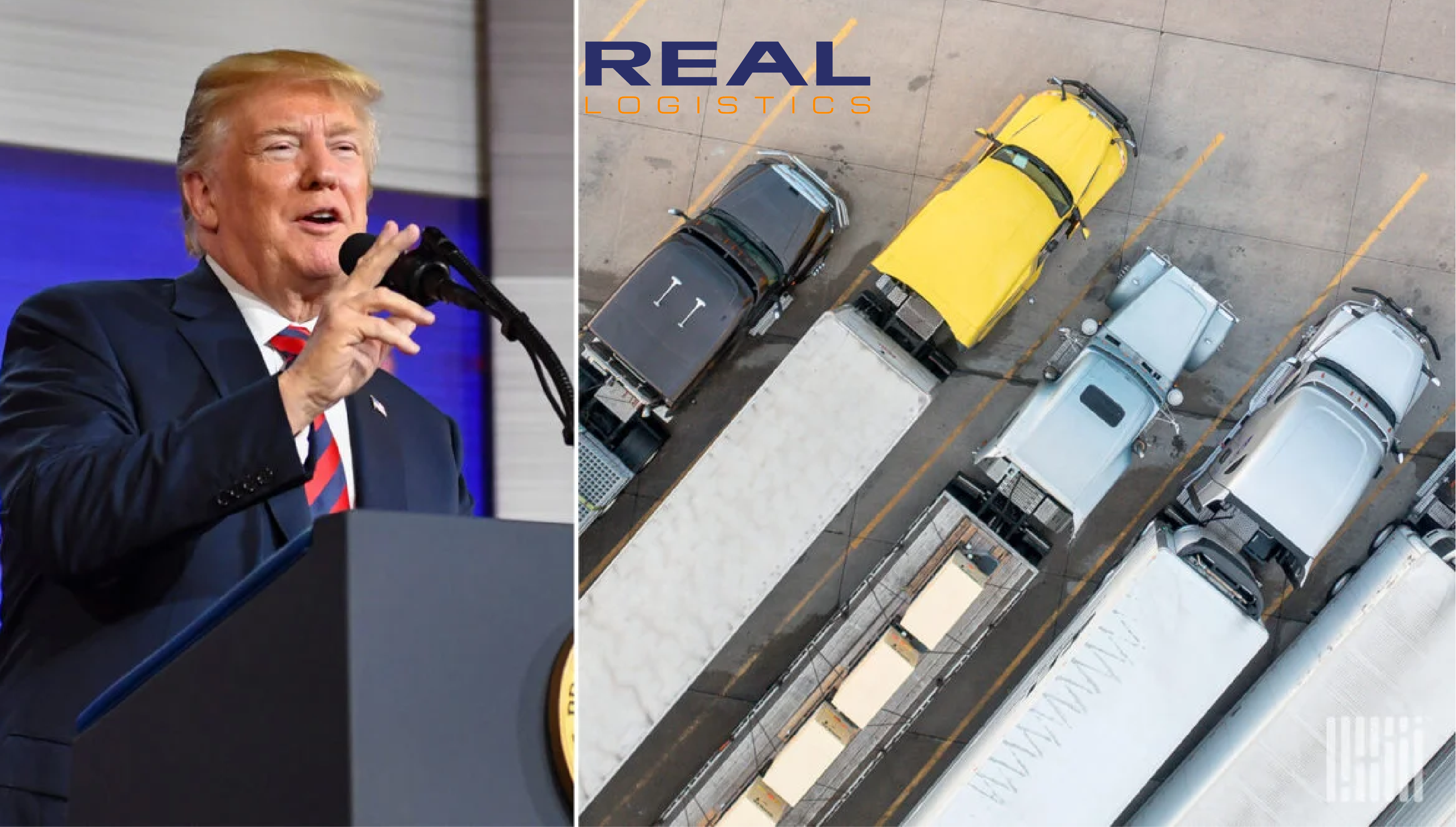The Impact of Trump’s Tariffs on Domestic Trucking Demand

1. Trump’s Tariffs: A Boost for Domestic Trucking Demand
Over recent months, tariffs have become a key talking point in the logistics and freight sectors. Often compared to sales taxes, tariffs represent a fundamentally different form of taxation. Unlike sales taxes, tariffs are imposed at the import stage based on the declared value of goods, excluding subsequent costs like labor, marketing, and retailer profit margins. This distinction means the effect of a tariff on the retail price is usually less than the actual tariff rate.
For instance, a car might only have a 5% markup, whereas luxury goods could see markups as high as 500%. Typically, consumer products are marked up by over 100% above their import value, but only the import value – not the final retail price – is subject to tariffs.
2. How Importers Are Responding to Tariffs
FreightWaves suggests that importers have several strategies to adapt to tariffs:
- Absorbing Tariffs: Some importers may choose to absorb tariffs into their profit margins to keep prices stable.
- Sourcing Alternatives: Others might shift production to countries with more favorable trade agreements with the U.S.
- Raising Prices: As a last resort, importers might pass the cost onto consumers if no other solutions are viable.
In response to tariffs, many companies explore alternative suppliers or even increase domestic production. The flexibility of sourcing allows businesses to remain competitive in a dynamic global market.

3. The Broader Impact of Tariffs
Tariffs impact not only importers but also foreign suppliers. For example, Chinese manufacturers often reduce prices to maintain competitiveness in the face of U.S. tariffs. Additionally, the Chinese government may offer subsidies to counteract trade disadvantages.
Two decades ago, the shift of U.S. manufacturing to China caused significant changes in domestic logistics, including a decline in long-haul trucking. However, tariffs that encourage reshoring or nearshoring manufacturing can rejuvenate domestic trucking demand. Increased manufacturing in the Americas means more freight movement between suppliers, creating opportunities for growth in the trucking sector.
4. Mexico as a Beneficiary
The U.S.-Mexico-Canada Agreement (USMCA) has made Mexico a key player in supply chain realignment. Companies seeking lower labor costs and reduced geopolitical risks increasingly turn to Mexico for sourcing. Even with potential tariffs on Mexican imports, trade with Mexico is expected to rise, benefiting both trucking and rail sectors in the U.S.

5. Lessons from the 2018 Tariffs
Trump’s 25% tariffs on Chinese goods in 2018 set a precedent for the current freight market. Despite concerns about consumer price increases, the impact was minimal and short-lived. The U.S. dollar’s appreciation helped mitigate inflation, showcasing the resilience of the U.S. economy.
6. Looking Ahead
Tariffs are not merely tools for revenue generation or trade balancing. They also serve strategic purposes, such as diversifying supply chains and bolstering national security. Policies encouraging advanced manufacturing sectors, like electronics and aerospace, aim to strengthen domestic production and create new opportunities for the logistics industry, supported by partners like Real Logistics.
7. Real Logistics: Your Partner in a Dynamic Freight Market
Navigating the complexities of global trade and tariffs requires a reliable logistics partner. Real Logistics is here to provide tailored solutions that meet your unique supply chain needs. Whether it’s managing cross-border freight, optimizing trucking routes, or ensuring supply chain resilience, our team of experts is committed to driving your business forward.
Contact Real Logistics today to explore how we can support your logistics and freight requirements in this ever-evolving market.
—————————————
Real Logistics Co.,Ltd
👉 Facebook: Real Logistics Co.,Ltd
☎️ Hotline: 028.3636.3888 | 0936.386.352
📩 Email: info@reallogistics.vn | han@reallogistics.vn
🏡 Address: 39 - 41 B4, An Loi Dong, Thu Duc, HCM City
51 Quan Nhan, Nhan Chinh, Thanh Xuan, Ha Noi City

